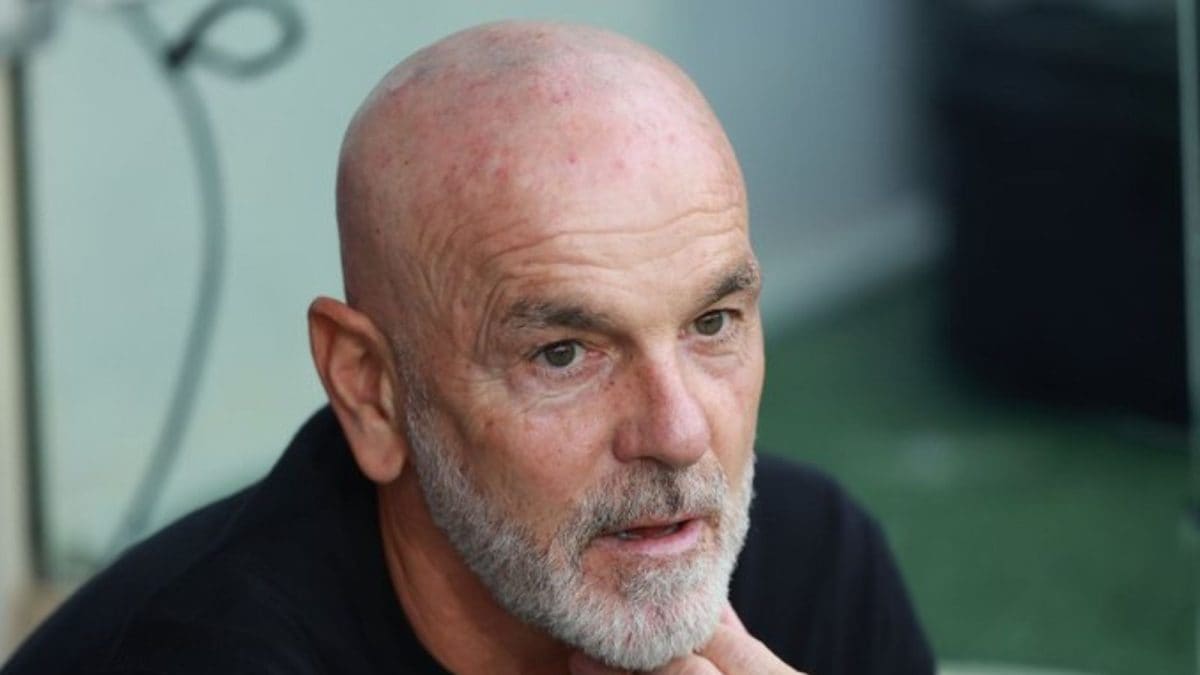ARTICLE AD BOX
For a man who has just lost a game after persevering for nearly five hours, Mohamed Allam is unnaturally cheerful. Hardly once during a 20-minute conversation does his grin fade. He crossed a border by land before taking two flights—from Jordan to Bahrain and from there to Goa—to compete at the World Cup in India, but a defeat in the opening game of the first round at the FIDE World Cup to Swedish grandmaster Nils Grandelius leaves Mohamed’s tournament hopes on the verge of ending in just two days. A day later, a draw against Grandelius means his tournament is over in just two days. But he understands—much better than most others—that life holds harsher cruelties than a chess tournament ending quickly.
The world might revert to simple analogies like calling chess as a war between miniature armies, but for Mohamed, the only player from Palestine at the FIDE World Cup in Goa, the sport is a peaceful refuge from everyday life.
“Chess is so peaceful, like every sport. For me, it’s a way to get away from the world for one or two hours. A paradise you can live in for some time. That’s true for all sports. You forget about everything else. You play like the world is perfect,” Mohamed says.
He calls himself an optimist, and in his outlook of life, it shows. Born and brought up in the Jenin Refugee Camp in Palestine’s West Bank, his family was displaced from even the refugee camp last year, where they had been living since the days of the Nakba (literally translating into ‘catastrophe’ in Arabic, but referring to the mass displacement and dispossession of Palestinians during the 1948 Arab-Israeli War). The United Nations Relief and Works Agency for Palestine Refugees in the Near East (UNRWA) estimates that as of 2023, there are 24,239 Palestine refugees officially registered in the camp while the population density in the camp is estimated at 57,712 per sq km.
 When Mohamed (pictured left) talks about playing chess in the refugee camp, he says he picked up the sport at the age of nine from his father, who was an amateur chess player. (Express Photo | Amit Kamath)
When Mohamed (pictured left) talks about playing chess in the refugee camp, he says he picked up the sport at the age of nine from his father, who was an amateur chess player. (Express Photo | Amit Kamath)
“I come from a place called Jenin camp, it’s a refugee camp. We were actually displaced last year. We got displaced from a refugee camp—imagine that. That home is partially destroyed. So we now live in a rented apartment in Jenin City, the main city. I’m not living at my home, basically,” he says before adding that he has not even attempted going back to his home to check on it.
While he understandably does not want to get into the specifics of what happened to the home or talk about the Israel-Palestine War, he does offer some details of what life in the refugee camp was like.
“In 2002, there was bombshelling of the refugee camp (when a quarter of the camp’s population was displaced as per UNRWA). When I was brought up, it was difficult. Even in 2007 and 2009, it was not safe. Even recently, it’s not safe,” he says.
Story continues below this ad
Ask him how these harsh cuts from life have shaped him and he says simply: “You start not caring, like, life continues.”
How does one reach a point of not caring about your home getting destroyed?
“You learn through life. You go through bad situations. You pass them. Like, why be sad?” he asks before finding a metaphor in chess. “When you build your home, it gets destroyed. You go somewhere else, and you build a new life. You build a life, it gets destroyed, so you start again. (Like) You lose a game, maybe you can hit back in the next game. That’s how you stay positive,” says Mohamed.
When Mohamed talks about playing chess in the refugee camp, he says he picked up the sport at the age of nine from his father, who was an amateur chess player. Success came quickly—within a month of him picking up chess at the age of nine, he won the Palestine U10 Championships.
Story continues below this ad
“It was a big surprise in the family,” he says. “But the chess scene was not as developed as it is now. “Recently there is growth in people who play the game and there are some young talents coming up. We have a good record in the Arab Youth Championship.”
Solo Representative
1
Only Palestinian player at FIDE World Cup in Goa, India
24,239
Palestine refugees in Jenin camp (UNRWA 2023)
57,712
Population density per sq km in the camp
2023
Family displaced from refugee camp, home partially destroyed
3
Olympiads played before this World Cup appearance
♟️
Goa, India (World Cup)
Indian Express InfoGenIE
While he lives in a rented apartment, where he says things are much easier than before, he does have to go the extra mile to play chess. For example, because there is no airport in Palestine, he has to travel by road into Jordan each time he has to play in international tournaments. With the border between Palestine and Jordan shutting down from time to time, each time he travels to tournaments, he usually has to leave for Jordan a few days prior and then stay there a day or two. At the Chess Olympiad in Budapest last year, the Palestinian team had to miss the first round due to visa issues.
“But there were other teams who had it worse, like Syria reached only before the sixth round,” he says.
Mohamed also has no one to play over-the-board games for practice back home, so most of his training happens online. In the first game against Grandelius on Saturday, Mohamed pulled a leaf out of his opponent’s book—literally, by using an opening line that Grandelius had created a course about for an online platform. Grandelius told FIDE in an interview that his opponent had actually told him in Goa, a few days before their clash, that he was a big fan of the Swede’s courses. It was an unusual interaction between rivals by chess standards, especially when grandmasters go to great lengths to even avoid making eye contact or sharing a smile with their opponent before a clash for fear of giving away a sliver of advantage. But for Mohamed, just playing at a World Cup was a transformative experience.
Story continues below this ad
“I played in three Olympiads, but the World Cup is something different. From this experience, I learned much better about the chess dynamics on the board: Like I learnt that sometimes you can sack two knights for two rooks and maybe there is life in such positions, you know? You actually learn from your losses. When you play very strong players, it’s an opportunity to grow,” he says. “And most of the time, I don’t play a lot of tournaments because there is some restriction in movement and also like the general atmosphere back at home is doomy. So basically, chess is a way to forget about life.”










 English (US) ·
English (US) ·